Transcripts of interviews with witnesses and participants in history, of expert observations from retrospective conferences examining key events and concepts in Israel's development, and of CIE webinars and workshop sessions
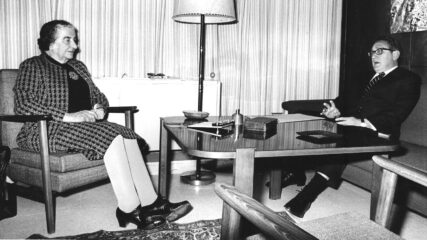
In carrying out research in the 1990s for Heroic Diplomacy: Sadat, Kissinger, Carter, Begin and the Quest for Arab-Israeli Peace, Routledge, 1999, I undertook 84 interviews with individuals who participated in the diplomacy.
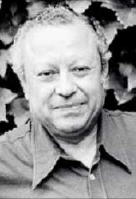
Tahsin Bashir served as spokesman for Egypt and for the Arab League in many capacities from 1963 to 1978. He knew Anwar Sadat intimately, revealing that Sadat kept his own counsel while using others to test political and diplomatic options. His long-term goal was to reorient Egypt away from Moscow and obtain Sinai’s return. Sadat cleverly managed others, including Kissinger, Carter and his own advisers.

June 10, 1992 (Permission to publish this interview granted by Peter Rodman, June 1992) Peter Rodman, member of United States National Security Council Staff and Special Assistant to Henry Kissinger and Brent Scowcroft, August 1969…

Ashraf Ghorbal represented Egypt to the US for four years from 1968 to 1972 until Egypt restored diplomatic relations with the US in the wake of the October War. Ghorbal was Sadat’s Ambassador in Washington for 11 years until 1984. He credits Sadat with foresight in setting out and fulfilling his diplomatic objectives; breaking from the USSR, aligning Cairo with the US, harnessing US diplomacy under Kissinger and Carter to secure Sinai’s return to Egyptian sovereignty, and even if that meant signing agreements and recognizing Israel.

Omar Sirry provides intimate details of the diplomatic aftermath of the October 1973 War, the Kilometer 101 talks, Kissinger’s choreography of the December 1973 Middle East peace conference, and admiration for Sadat as the “modern Egyptian Pharaoh” who was not ever politically passive but took repeated initiatives for Egypt’s benefit.
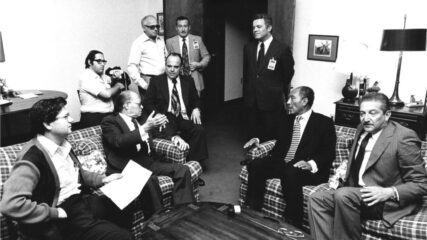
In the 1970s, US State Department Ambassador Michael Sterner was privy to Sadat’s preference for step-by-step diplomacy PRIOR to the 1973 October War. He is critical of the Carter administration for being too satisfied with only a bilateral Egyptian-Israeli Agreement.
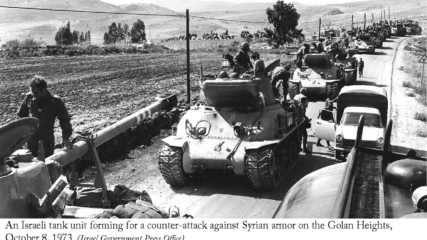
Proceedings of a conference concluded that while pre-war intelligence was plentiful and accurate, there was a massive U.S. intelligence failure. Misinterpretation layered on top of preconceived notions of Arab military ineptitude and faith in diplomacy formed the core of the failures.

Recounting events at the Egyptian-Israeli-American negotiations, a dozen American, Israeli and Egyptian participants discuss those 13 days of negotiations. Negotiators agreed that they pursued success through “constructive ambiguity,” some at high levels, so the respective sides could agree, for example, on using the term “modalities” to describe a future element that could not be defined in a more tangible way. President Carter and Israel’s attorney general at the time of Camp David disagreed at the conference about what Prime Minister Begin promised on the duration of a settlement moratorium. William Quandt, an NSC official, acknowledged that there was no written record of a Begin promise for three months. Carter claimed the promise was in his diary notes, but others who saw Carter’s diary said no such promise was made or was in Carter’s notes.

Jimmy Carter, “The U.S.-Iran Relationship, the Shah’s Downfall, Khomeyni’s Rise to Power, and the Hostage Crisis,” an Emory class presentation, Atlanta, March 24, 1985, recorded and transcribed with permission.

Hermann Eilts played a pivotal role in representing the U.S. to Egypt and vice versa in the vital 1973-1980 period when Egypt embraced Washington and turned away from Moscow, and made peace with Israel. Eilts knew Egyptian President Sadat as well as any American official in the period. He provides rich detail and vivid insights into Sadat’s often mercurial decision-making.

Nabil Shaath was a close adviser to Arafat particularly in the tumultuous 1998-1993 period when the PLO was buffeted by events and bad choices. Shaath praised Secretary Baker, President Bush and Yitzhak Rabin, and was pleased that Palestinians were participating in the Madrid Conference. He hoped for an end to the conflict with Israel in 1992, based on land for peace but held out for the right of Palestinian return for that to happen. In 2023 he is a foreign policy adviser to Mahmoud Abbas.

To commemorate the 20th anniversary of the 1991 Madrid Middle East Peace Conference, the U.S. Institute of Peace and the James A. Baker III Institute for Public Policy convened Arab, Israeli, American and European diplomats, policymakers, businesspeople, academics and activists in Washington on November 2, 2011, to discuss the achievements and lessons of the peace conference.

Ambassador Joseph Sisco was an integral member of Secretary of State Henry Kissinger’s team that put together three military disengagement agreements after the October 1973 War. Sisco has high praise for Sadat’s wisdom and courage and insight in working with Kissinger to turn Egypt away from Moscow and into agreements with Israel.
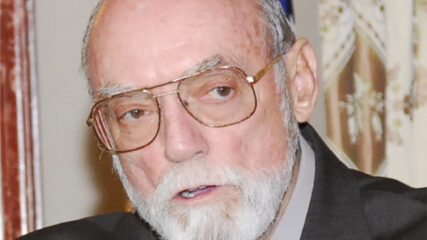
Sam Lewis was the U.S. ambassador in Israel when Menachem Begin was prime minister; his influence was most significant in keeping a taut and fraught Israeli-U.S. relationship from unravelling in the Camp David era. Lewis’ recollections and conclusions are enormously incisive.

Dinitz focuses on mostly the 1973 October War period, the controversy of delay in the resupply of American military materials to Israel, his relationship with Kissinger and how the US Secretary of State maneuvered the Soviet Union out of postwar diplomacy. He notes that elements of the Israeli army leadership strongly wanted to embarrass Sadat after the war by harming his Israeli surrounded Egyptian Third Army. In the end Israel’s political leadership allowed diplomacy to unfold. Dinitz has great praise for Egyptian President, Anwar Sadat.

Mordechai Gazit served as Director General in Prime Minister Golda Meir’s office from March 1973 to her resignation in April 1974. He observed the outbreak of the October 1973 War and Henry Kissinger’s diplomatic choreography as it unfolded thereafter. Gazit suggests that he was the source of Israeli and Egyptian generals to negotiate face to face at the end of the war near Kilometer 101.
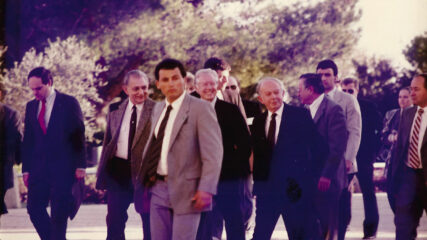
A life-long Israeli civil servant, Epi Evron was deeply engaged with Kissinger, Sadat, Meir, Rabin, Carter, Begin and others, as Egyptian-Israeli negotiations unfolded in the 1970s. One will find crisp in his interview insightful assessments of personalities, decision-making processes, and colorful vignettes.
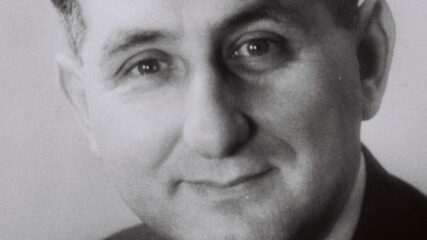
Gideon Rafael’s contributions to Israeli diplomacy spanned four decades. His recollections are from the 1930s, the end of the 1947-1949 war, unfolding events before the June 1967 war, and his clear
criticisms of his government’s insufficient response to Sadat’s negotiating overtures to Israel prior to the 1973 War. His life long conclusion: he had hoped that diplomacy would have worked better than it actually did.

From 1961 until the early 1980s, Harold Saunders was a key US State Department bureaucrat, an enormously capable word-smith. He had his hand in drafting the 1974-1975 ARab-Israeli Disengagement Agreements, Camp David Accords and E-I Treaty. His memory for detail enabled consequential decision-makers to understand the historical context of events and ideas such as ‘land for peace,’ ‘territorial integrity,’ ‘legitimate rights,’ and a myriad of diplomatic promises made spanning multiple presidencies.

July 16, 1992 Ken Stein Interview with Ambassador Roy Atherton, Washington, D.C., July 16, 1992 Alfred Roy Atherton Jr. participated in U.S-Soviet Middle East negotiations and formulation of the Rogers Plan, 1969; Kissinger-Ismail secret meeting…

From 1974 – 1981, Dan Pattir served as advisor on media and public affairs for Prime Ministers Yitzhak Rabin and Menachem Begin. Prior to working for two Prime Ministers, he Pattir worked in the Israeli media, and here he recalls in detail how Kissinger maneuvered the Geneva 1973 conference to keep the Soviets out of decision-making. Likewise he was intimate with the negotiating details and personal relationships that unfolded between Egypt and Israel in that period, especially 1977-1979 including his rendition of the September 1978 Camp David negotiations. Pattir concluded that the Carter administration, no matter how long it earnestly tried, it failed to grasp that neither Egypt nor Israel, were going to allow other Arab states or the Palestinian issue to interfere with their eagerly sought mutually beneficial bilateral agreement, before, during or after Camp David.

Mordechai Kidron served in the Israeli Foreign Ministry during and after the October 1973 War. He touched on the war, its aftermath and the unfolding of the Sinai I – Egyptian-Israeli military negotiations and short military talks that took place after the war. He thought that the December 1973 Geneva conference was going to be a long process, not knowing that the conference was stage managed by Kissinger, Sadat, and Meir. Meir was deeply emotional about having Israeli POW’s returned. He notes that Foreign Minister Abba Eban, whom he called an optimist … “was not really altogether founded in reality.”

Moshe Sasson spanned four decades in his service to Israel, from the Haganah’s Arab Department of Intelligence in the 1940s to being Israel’s Ambassador to Egypt in the 1980s. He recollects analytically and in detail his conversations with Arab leaders at Lausanne as well as personal impressions of Moshe Dayan and Anwar Sadat. A tour de force.

October 29, 1992 After learning Hebrew, David Korn rose to become chief of the political section while at the U.S. Embassy in Tel Aviv (1968 to mid-1971). Later, he was office director for northern Arab…













